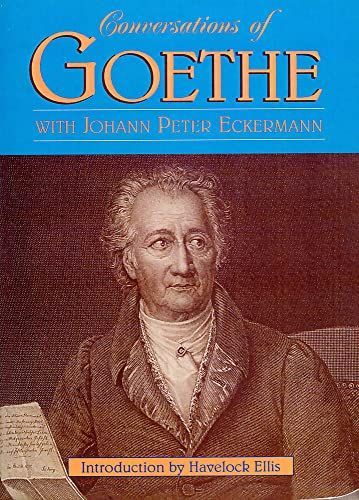
Conversations Of Goethe
German poet, dramatist, novelist, translator, scientist, and musician, Johann Wolfgang von Goethe (1749–1832) was the last universal genius of the West and a master of world literature, the author of The Sorrows of Young Werther, Wilhelm Meister, and Faust. Nowhere else can one encounter a more penetrating, many-sided, and personal Goethe than in the extraordinary Conversations (1836) by Johann Peter Eckermann (1792–1854), a German author and scholar as well as Goethe's friend, archivist, and editor. Although only thirty-one when first meeting the seventy-four-year-old literary giant, Eckermann quickly devoted himself to assisting Goethe during his last nine years while never failing to record their far-ranging discourse. Here are Goethe's thoughts on Byron, Carlyle, Delacroix, Hegel, Shakespeare, and Voltaire, as well as his views on art, architecture, astronomy, the Bible, Chinese literature, criticism, dreams, ethics, freedom, genius, imagination, immortality, love, mind over body, sculpture, and much more. Eckermann's Conversations—comparable to Boswell's Life of Samuel Johnson—allows Goethe to engage the reader in a voice as distinct as it is entrancing.